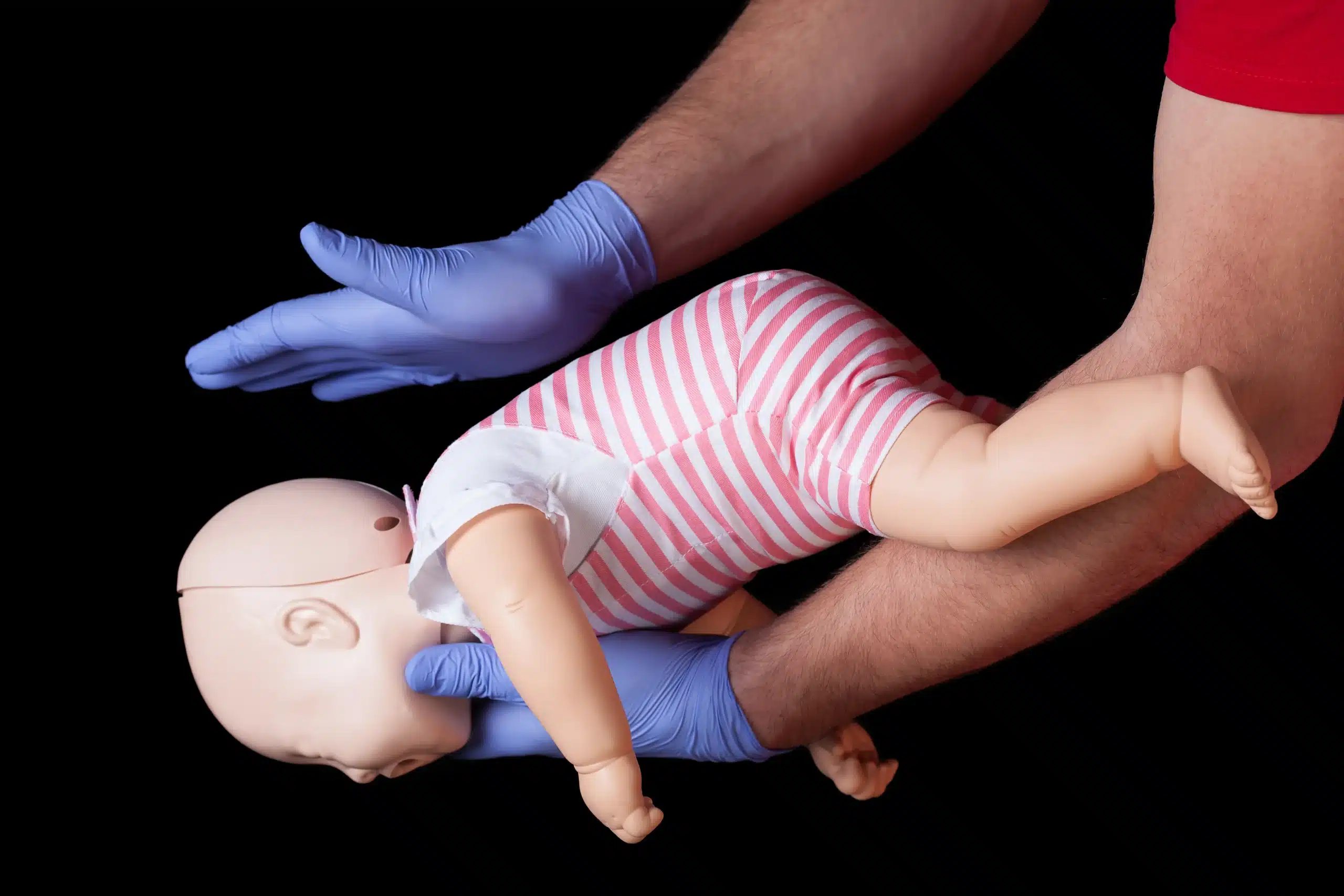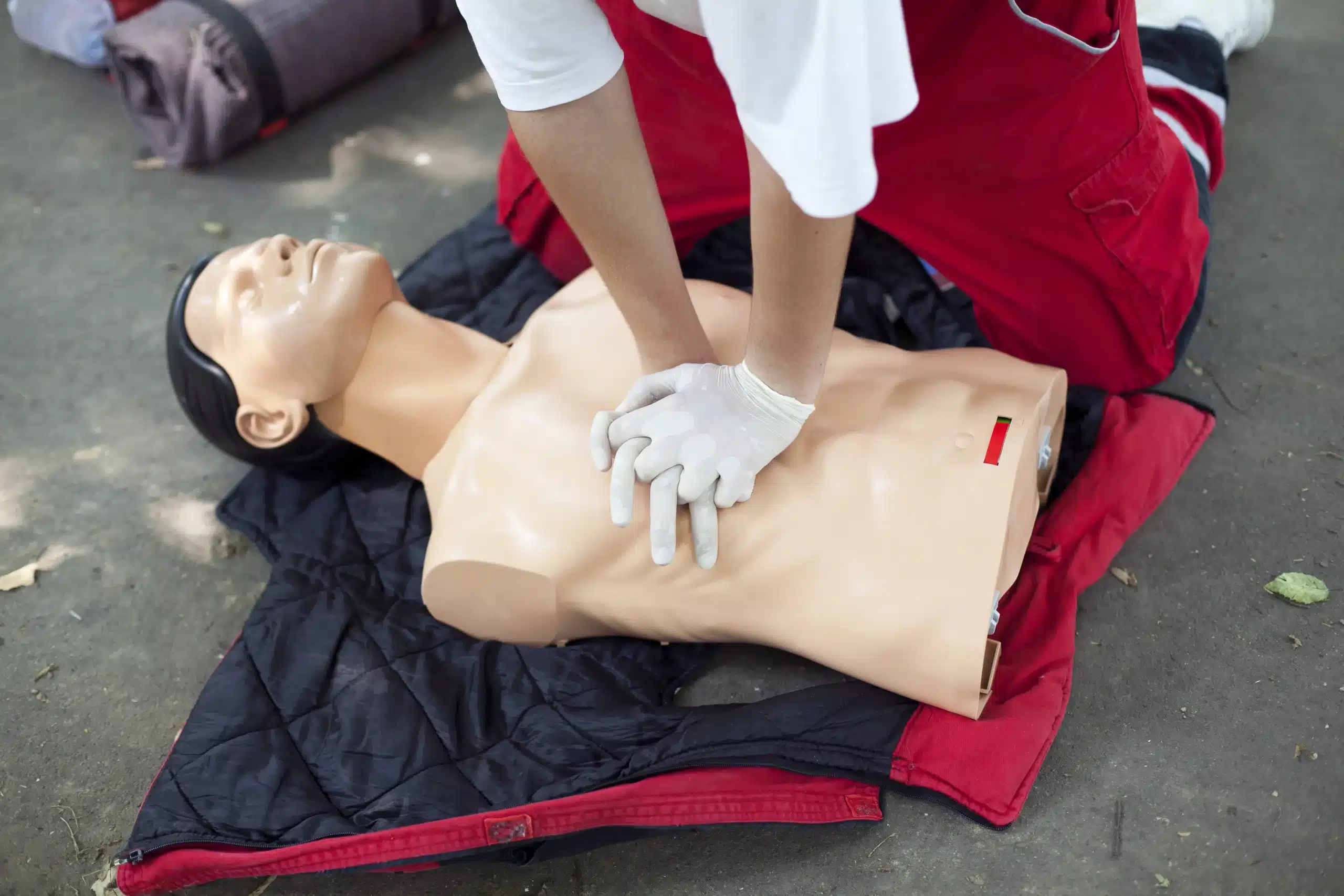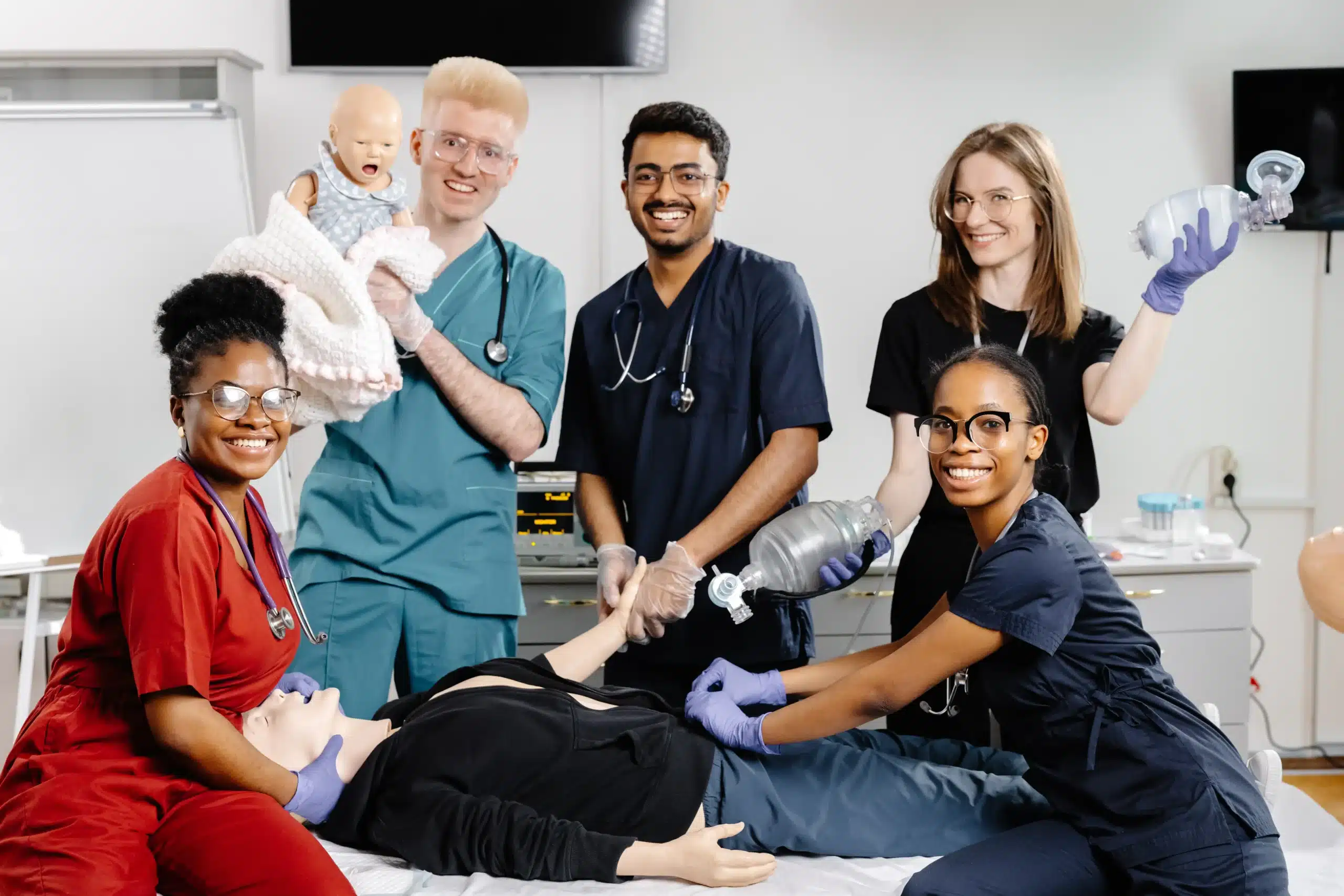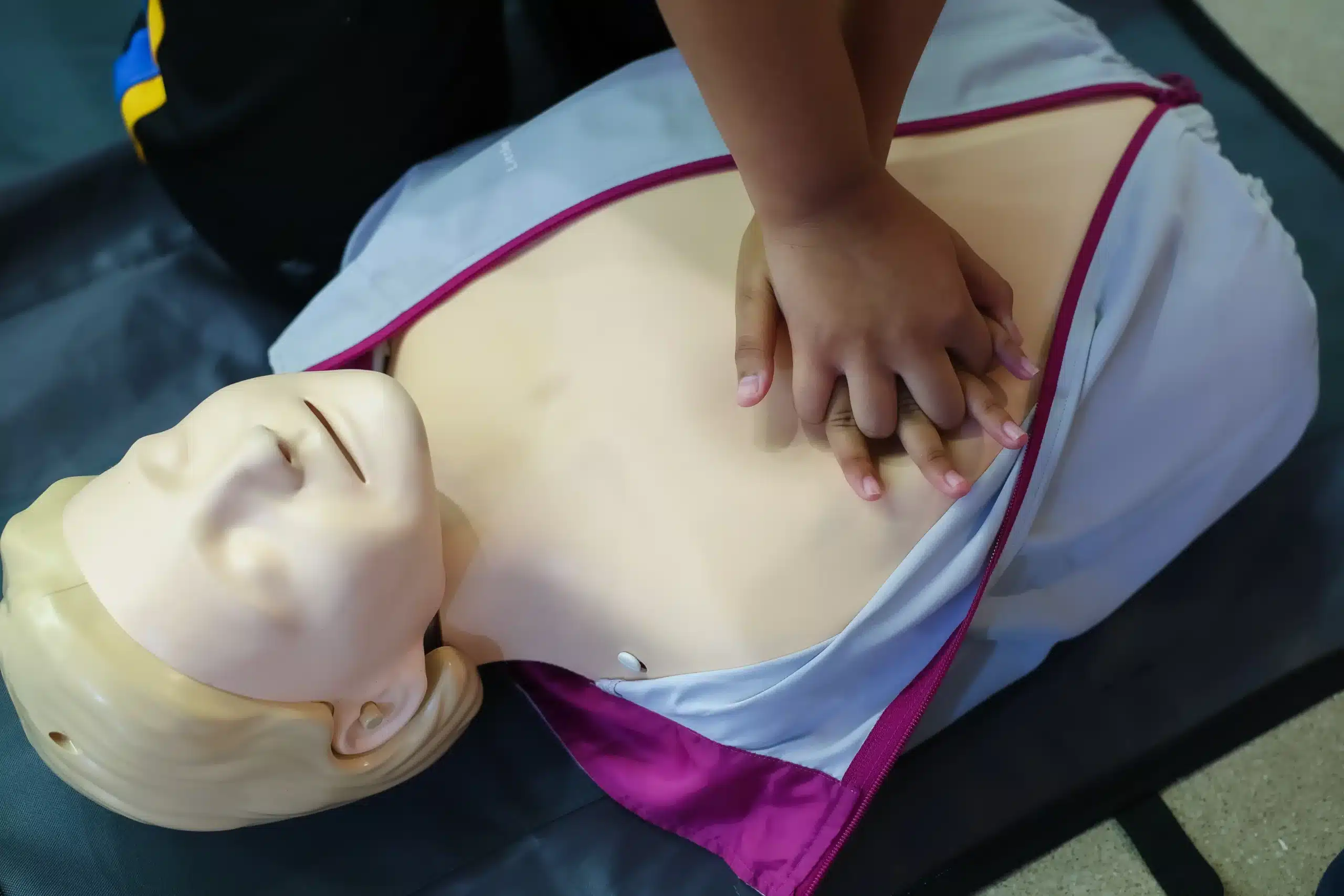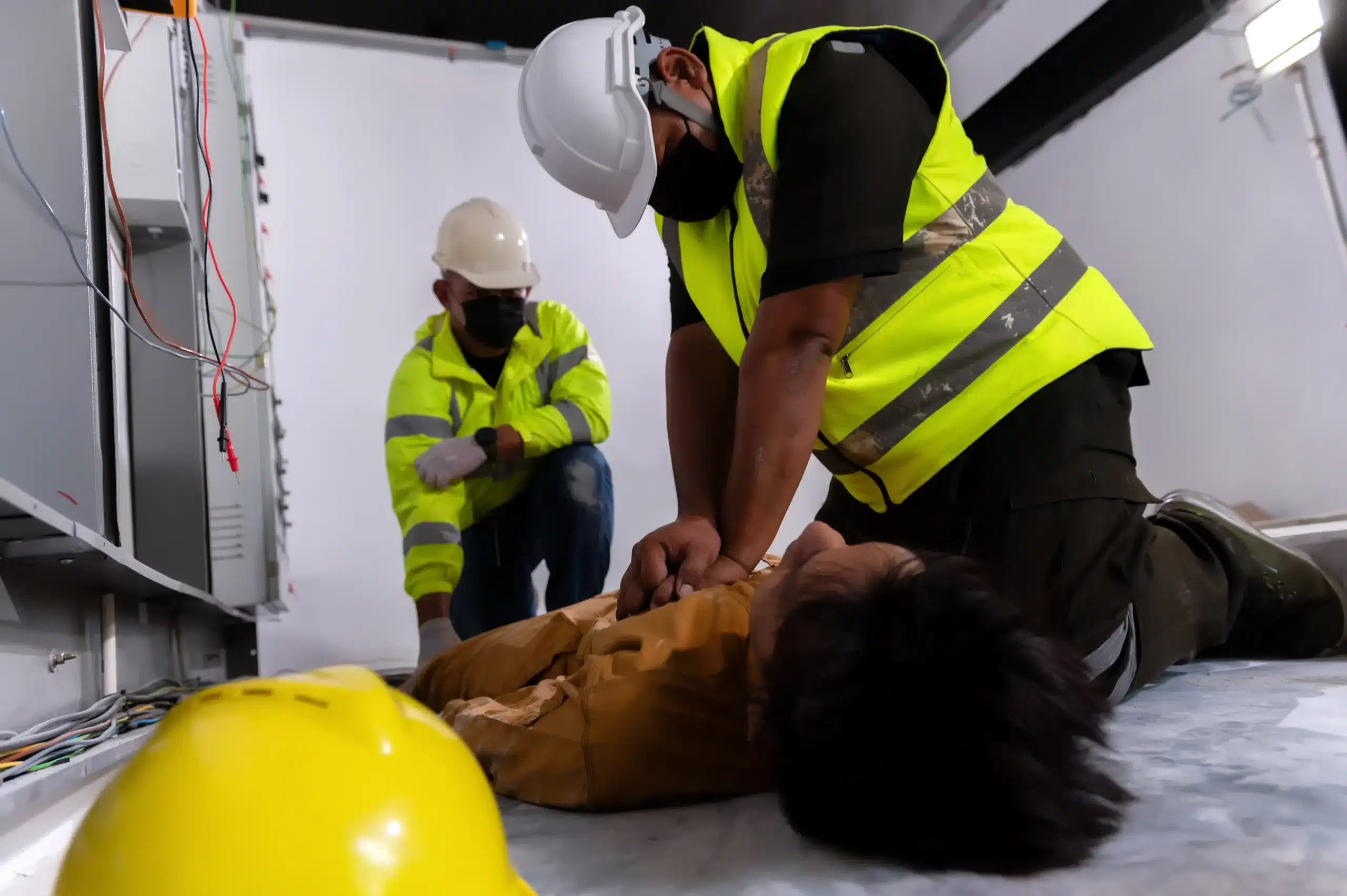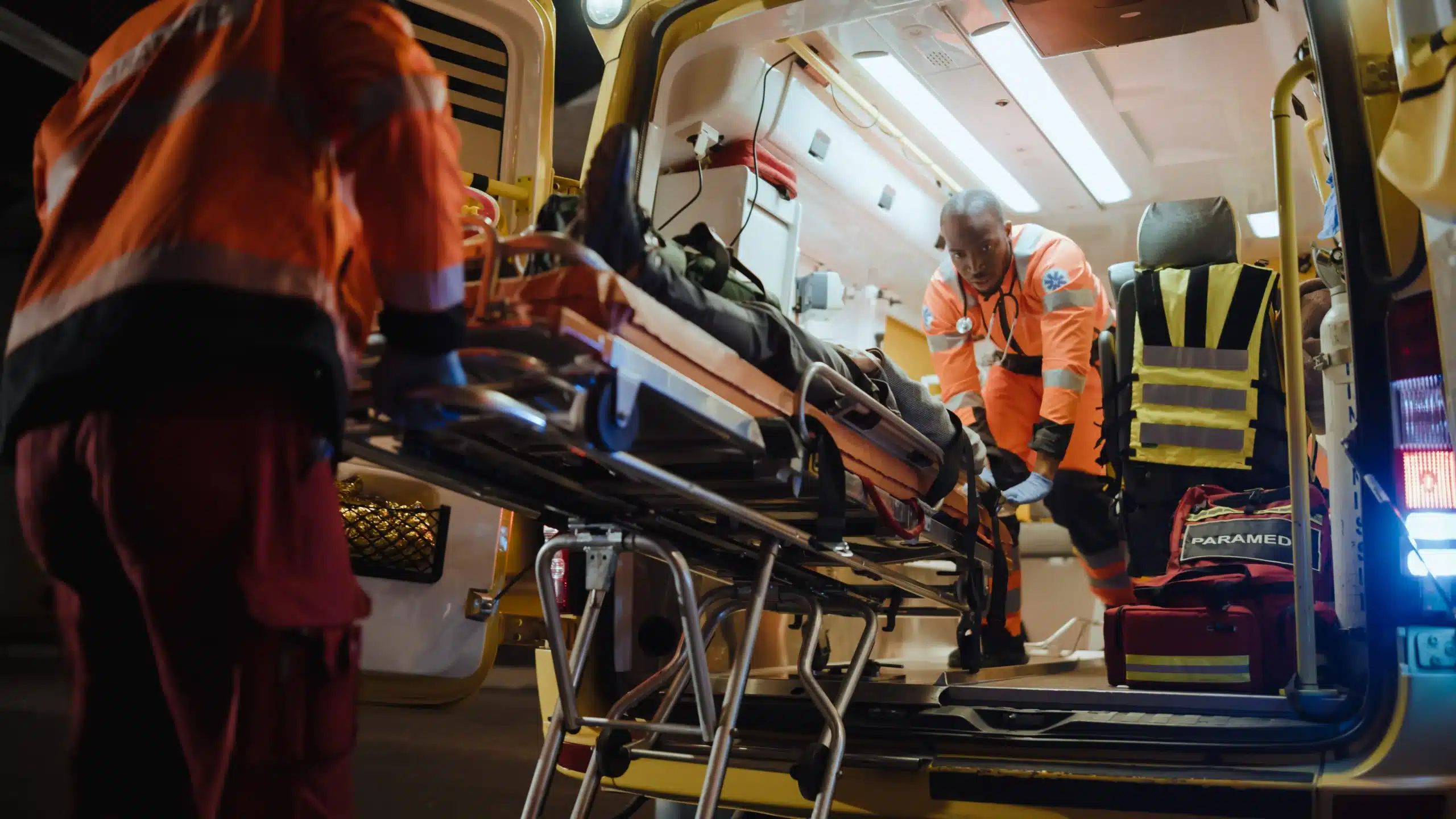Life-saving skills are precious, and maintaining proficiency in Basic Life Support (BLS) is crucial for anyone certified in these techniques. Whether you’re a healthcare professional, a childcare provider, or simply someone who wants to be prepared, BLS recertification keeps your skills current and your confidence strong. This guide will cover everything from understanding the recertification process to finding the right course for you, including tips on searching for “bls recertification near me.” We’ll delve into the importance of staying updated with the latest guidelines, explore different learning formats, and discuss the costs and value of recertification. Let’s ensure you’re always ready to respond effectively in emergencies.
Key Takeaways
- Regular BLS recertification is vital: Staying up-to-date on the latest life-saving techniques and guidelines ensures you can provide effective care in emergencies. It also demonstrates your commitment to high standards.
- Finding the right course matters: Consider your learning style, schedule, and budget when choosing between online, in-person, or blended learning formats. Research providers, compare costs, and check student reviews.
- Stay sharp between renewals: Refresh your knowledge and skills regularly by reviewing materials and practicing key techniques. Staying informed about updates from reputable organizations will keep your skills current and your confidence high.
What is BLS Recertification & Why is it Important?
BLS recertification is like a refresher course for Basic Life Support. It’s how healthcare providers and other certified professionals stay up-to-date on the latest life-saving techniques. Think of it as getting your CPR skills tuned up. Even if you’re confident in your abilities, guidelines and best practices change, so regular recertification is key. It ensures you’re always prepared to provide the highest quality care in emergencies. This also helps you maintain confidence and competence in your skills.
Key BLS Guideline Changes
Staying current with BLS guidelines is crucial for providing effective care. Over time, research and practical experience lead to improvements in resuscitation techniques. Recertification courses cover these updates, ensuring you’re using the most effective methods. For example, changes might include adjustments to the recommended compression rate or depth, or new protocols for using an AED. By taking a BLS recertification course, you’ll learn about these changes and practice implementing them, ultimately leading to better patient outcomes.
Importance for Healthcare Professionals
For healthcare professionals, BLS recertification is often a job requirement. It demonstrates your commitment to maintaining a high standard of care and ensures you’re equipped to handle emergencies effectively. Beyond meeting professional obligations, recertification offers significant personal benefits. It reinforces your skills and boosts your confidence in responding to critical situations. Knowing you have the most current knowledge and skills can make a real difference in the outcome of a life-threatening event. Whether you’re a doctor, nurse, EMT, or other healthcare provider, maintaining your BLS certification is essential for providing the best possible care. If you’re in the Visalia area, Safety Training Seminars offers convenient and affordable options.
Find the Best BLS Recertification Providers Near You
Finding the right BLS recertification provider is key to a smooth and valuable learning experience. Whether you’re in Visalia, a surrounding area, or prefer an online course, several quality options are available. Let’s explore some of them.
Safety Training Seminars in Visalia
If you’re near Visalia, CA, Safety Training Seminars offers various American Heart Association (AHA) courses, including BLS certification and recertification. They focus on providing high-quality instruction and affordable prices, making them an excellent choice for healthcare providers and other professionals needing recertification. Their courses equip you with the skills to handle emergencies confidently. Check their website for their low price guarantee and find a BLS course in Visalia that fits your schedule. They also offer other valuable courses like RQI classes to further enhance your skills. For any questions, feel free to contact them directly.
Other Local Options
Beyond Safety Training Seminars, explore other training centers and community colleges in your area. Look for providers offering AHA-certified courses. A reputable provider ensures you receive high-quality instruction and a recognized certification. Reach out to local hospitals or clinics—they often have recommendations or host their own recertification courses.
Online Alternatives
Online BLS recertification courses offer flexibility for those with busy schedules or limited access to in-person training. Some providers, like ACLS Medical Training, offer fully online recertification that covers the required material. While convenient, remember that in-person training offers hands-on practice, which can be invaluable for building confidence and proficiency in BLS skills. Consider what learning style best suits you when making your decision. If you prefer a blended approach, Safety Training Seminars offers a mix of in-person, online, and blended learning formats for their AHA courses. This allows you to tailor your learning experience to your specific needs.
Compare In-Person & Online BLS Recertification
Deciding between in-person and online BLS recertification depends on your learning style, schedule, and budget. Both formats cover the same core material and result in the same certification, but the learning experience differs. Let’s break down the pros and cons of each to help you decide which path suits you.
Pros and Cons of Each Format
In-Person BLS Recertification:
-
Pros: In-person classes offer hands-on practice and immediate feedback from a certified instructor. This direct interaction can significantly enhance your learning and skill retention. Plus, practicing with other students creates a supportive learning environment. For many, the structured classroom setting also promotes better focus. If you learn best by doing and value personal interaction, an in-person BLS course may be ideal.
-
Cons: In-person training often requires a greater time commitment, including travel. This can be challenging for busy professionals. In-person classes also tend to have less scheduling flexibility. If your schedule is packed, finding a class that works may be difficult.
Online BLS Recertification:
-
Pros: Online courses offer unparalleled flexibility, allowing you to learn at your own pace and on your own schedule. This format is ideal for those with unpredictable schedules or limited access to transportation. You can revisit modules as needed and tailor your study time to your learning style. Online recertification can also be a more affordable option. If you need flexibility and prefer self-directed learning, online recertification may be a good fit.
-
Cons: While convenient, online learning typically lacks the hands-on element crucial for mastering BLS skills. Although some programs incorporate video demonstrations and simulations, they don’t fully replicate practicing on a manikin with an instructor. Self-discipline and motivation are also essential for successful online learning. If you prefer hands-on learning and struggle with self-motivation, in-person training may be a better choice.
Choose the Right Option for You
When selecting a BLS recertification provider, consider factors like course format (online, in-person, or blended), cost, and the training center’s reputation. Choosing a reputable provider ensures you receive high-quality instruction and a valuable certification recognized by employers and healthcare organizations. Think about your learning preferences, available study time, and your budget. If you thrive in interactive environments and value hands-on practice, in-person training might be the better choice. If flexibility and self-paced learning are priorities, an online course could be a perfect fit. The best option is the one that best prepares you to confidently perform BLS.
Understand BLS Recertification Costs & Value
Getting recertified in Basic Life Support (BLS) involves some expense, but it’s a worthwhile investment in your career and the lives you touch. Let’s break down the typical costs and the significant value you gain.
Typical Price Ranges & Cost Factors
BLS recertification costs vary based on several factors. Generally, classes range from $50 to $150, with the price influenced by your location, the course format (online, in-person, or blended), and included materials. For example, BLS classes in San Francisco fall within this range. In Visalia, our Low Price Guarantee ensures you’re getting affordable, high-quality training in Tulare County. When comparing prices, consider the training center’s reputation and what’s included. A slightly higher price might include extras like a certification card or online resources.
Long-Term Benefits of Recertification
While cost is a factor, the long-term benefits of BLS recertification far outweigh the upfront expense. Think of it as an investment in your skills and confidence. Regular recertification reinforces best practices for chest compressions and rescue breaths, keeping you updated on the latest American Heart Association guidelines. This translates to improved patient outcomes and potentially saving lives. Maintaining your BLS certification also demonstrates your commitment to professional development, which can enhance your career. Plus, knowing you’re prepared for emergencies brings peace of mind. For more on staying current with your BLS skills, check out this article on the benefits of BLS recertification. Ready to find a course? Explore our BLS courses in Visalia.
What to Expect from the BLS Recertification Process
Getting recertified in Basic Life Support (BLS) is a straightforward process. Here’s what you can expect, from signing up to completing the course:
Enrollment Steps & Prerequisites
Finding the right BLS recertification course starts with identifying a program that works for your schedule, budget, and learning preferences. At Safety Training Seminars, we offer a variety of BLS courses in Visalia designed for your needs. There typically aren’t prerequisites for BLS recertification—just a current BLS certification card nearing its expiration date. Enrollment usually involves registering online, providing your previous certification information, and paying the course fee. We make registration easy, and our team is available to answer any questions. Check our Low Price Guarantee.
Course Duration & Content Overview
BLS recertification courses cover core life-saving skills, refreshing your knowledge and technique in CPR, AED use, and airway management. These courses prepare you to handle medical emergencies, whether you’re a healthcare provider or simply want to be prepared. Course duration can vary, but most recertification classes are completed in a single day. This allows you to quickly update your credentials and return to work or other commitments. Our BLS course covers all the essentials and provides ample practice time.
Skills Assessment & Hands-on Practice
While online BLS recertification options exist, in-person training offers invaluable hands-on learning. You’ll practice your skills in a realistic environment, receive personalized feedback from certified instructors, and gain confidence. A typical BLS recertification course includes skills assessments and practice scenarios to ensure you’re proficient in all the essential techniques. This practical experience is crucial for effectively using your skills in real-life emergencies. Contact us to learn more about our hands-on training.
Evaluate BLS Recertification Providers
Finding the right BLS recertification provider is crucial for a valuable learning experience. Here’s what to consider:
Accreditation & Instructor Qualifications
A reputable provider, like Safety Training Seminars, offering American Heart Association (AHA) courses, ensures high-quality instruction and a recognized certification. Look for providers accredited by the AHA. This accreditation validates the program’s adherence to the latest BLS guidelines. Equally important are the instructor’s qualifications. Confirm that instructors are certified and experienced healthcare professionals with a passion for teaching. This ensures you learn from experts who can effectively convey life-saving techniques.
Student Reviews & Testimonials
Student feedback offers valuable insights into a training center’s strengths and weaknesses. Check online reviews and testimonials to understand past students’ experiences. Look for comments about the quality of instruction, course materials, and the overall learning environment. Positive reviews often highlight engaging instructors, clear explanations, and a supportive atmosphere.
Key Questions to Ask Before Enrolling
Before committing to a BLS recertification course, gather information by asking potential providers key questions. Inquire about the course format (online, in-person, or blended learning), cost, and the training center’s reputation. Understanding these factors helps you choose the best fit for your needs and learning style. Consider factors like class size, available dates and times, and the location’s accessibility. Also, ask about the RQI classes available. Preparing for your course by reviewing key skills like CPR and AED use refreshes your knowledge before the renewal course. Don’t hesitate to contact providers directly—Safety Training Seminars makes it easy through our contact form—to discuss your specific requirements. Our Low Price Guarantee ensures you’re getting the best value. Check our BLS course schedule to find a class that works for you.
Overcome Common BLS Recertification Challenges
Let’s face it, renewing your BLS certification can sometimes feel like a logistical puzzle. Between busy schedules and finding the right course, several hurdles can pop up. But don’t worry, with a little planning, you can easily overcome these common challenges.
Limited Course Availability
Finding a BLS recertification course that fits your schedule and location can be tricky. Not all training centers offer classes frequently, and some areas might have limited options. Start your search early and explore various providers. Look beyond your immediate neighborhood—expanding your search radius can uncover more opportunities. A good starting point is to search for “BLS training near me,” but remember that choosing a reputable provider ensures you receive high-quality instruction and a valuable certification. Safety Training Seminars, for example, offers a range of American Heart Association courses, including BLS, at competitive prices. Check their website for their Low Price Guarantee. They also offer RQI classes.
Balancing Work Schedules
Many of us juggle demanding work schedules, making it tough to carve out time for BLS recertification. Fortunately, there are flexible options available. In-person classes are great for hands-on learning, but if your schedule is packed, consider online or blended learning programs. These formats allow you to complete the coursework at your own pace, fitting it around your work commitments. Safety Training Seminars offers various AHA courses, including BLS certification, in several formats. Contact them today to learn more about convenient options like in-person BLS classes, online courses, and blended learning. You can find their contact information here. You can also view the BLS course schedule for their Visalia location here.
Meeting Employer Requirements
Healthcare employers often have specific requirements for BLS recertification, such as adhering to the latest AHA guidelines. Before enrolling in a course, double-check your employer’s requirements to ensure the program aligns with their standards. This proactive step will prevent any surprises down the road and ensure your recertification is valid and accepted. Recertification in Basic Life Support (BLS) is crucial for a wide range of professionals, ensuring they maintain the skills and knowledge to respond effectively in emergencies. Staying current with your BLS certification demonstrates your commitment to patient safety and high-quality care.
Maintain Your BLS Certification Long-Term
Keeping your BLS skills sharp is an ongoing process. This section covers how to stay current with your certification and maintain your skills between renewals.
Renewal Frequency & Requirements
BLS certification is valid for two years. There’s no grace period after it expires, so plan to renew your BLS certification before the expiration date. To renew, you must complete a BLS renewal course and pass the exam. This ensures you’re up-to-date with the latest American Heart Association guidelines and best practices. Heart Start CPR offers helpful information on BLS renewal requirements. Scheduling your renewal course ahead of time helps avoid a lapse in your certification.
Stay Up-to-Date Between Recertifications
Even if your BLS certification isn’t up for renewal yet, staying current with the latest guidelines and techniques is essential. Regularly reviewing the material and practicing your skills can significantly impact your confidence and effectiveness during an emergency. Consider subscribing to newsletters or following reputable organizations like the American Heart Association for updates. Providers like Safety Training Seminars offer resources and courses to help you refresh your knowledge between recertifications. Maintaining your BLS skills demonstrates your commitment to providing the best possible care.
Related Articles
- BLS Certification in Walnut Creek: Your Guide – Visalia CPR Classes
- BLS Renewal in Tulare: Your Guide – Visalia CPR Classes
- BLS Certification in Tulare County: Your Complete Guide – Visalia CPR Classes
- BLS for Healthcare Providers in Delano: Your Guide – Visalia CPR Classes
- HeartCode BLS in Walnut Creek: Your Certification Guide – Visalia CPR Classes
Frequently Asked Questions
Why is BLS recertification important?
BLS recertification keeps your skills fresh and aligned with the latest guidelines, ensuring you can provide effective care during emergencies. It also demonstrates your commitment to professional development and can be a job requirement in many healthcare settings. Ultimately, staying recertified benefits both you and those you care for.
How do I find a BLS recertification course near me?
Start by searching online for “BLS training near me” or checking with local hospitals, clinics, and community colleges. Look for providers offering AHA-certified courses to ensure you receive high-quality instruction and a recognized certification. If you’re in the Visalia area, Safety Training Seminars is a great option.
What’s the difference between in-person and online BLS recertification?
Both formats cover the same core material and lead to the same certification. In-person classes offer hands-on practice and direct interaction with instructors, while online courses provide flexibility and self-paced learning. Consider your learning style and schedule when deciding which format is best for you.
How much does BLS recertification cost?
Costs typically range from $50 to $150, depending on location, course format, and included materials. While there’s an upfront cost, recertification is a valuable investment in your skills and career. Remember to check for any low price guarantees or special offers when comparing providers.
How often do I need to renew my BLS certification?
BLS certification is typically valid for two years. It’s essential to renew before the expiration date to avoid a lapse in your certification. Plan and schedule your renewal course in advance to ensure a smooth process.
